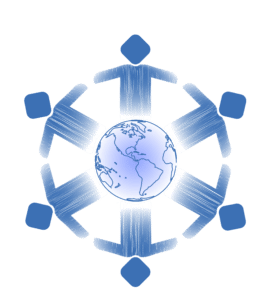Tobacco consumption is the single largest preventable cause of death, responsible for over 7 million deaths annually, of which around 1.2 million are nonsmokers exposed to second-hand smoke (IHME, 2021). The WHO states that all forms of tobacco are harmful, and there is no safe level of exposure to tobacco. Over 80% of tobacco users worldwide live in low- and middle-income countries, where the burden of tobacco-related illness and death is heaviest. Tobacco addiction diverts household spending from basic necessities to tobacco, exacerbating poverty worldwide. Since tobacco products are in high demand, children from poor households in some countries, are employed in tobacco farming to boost family income, exposing them to a number of health risks, including the “green tobacco sickness”. Smokeless tobacco exposure is highly addictive and damaging to health, increasing the risk of cancers of the head, neck, throat, esophagus, and oral cavity (WHO, 2021).
Dr. Bianco, MD, the Director of International Policy Education in Addiction for the Addiction Training for Health Professionals (ATHP) program, is the chair of the World Heart Federation’s Tobacco Expert Group (TEG). Dr. Eduardo Bianco is also a Cardiologist and has a Master’s degree in Prevention and Treatment of Addictive Behaviors. He is based in Uruguay, where he worked as a Clinical Cardiologist from 1987 to 2015. He later worked as a Technical Director of the MOH Center for International Cooperation of Tobacco Control of Uruguay (2020-2021). As FCA Regional Coordinator, Bianco has intensively participated in the WHO Framework Convention on Tobacco Control since its inception in 2000. For more than 25 years, he has dedicated his time to working on tobacco dependence treatment and tobacco control policies. He has played a crucial role in developing smoking cessation, tobacco control, and NCD policies in Uruguay as well as in Latin America.

As a renowned health professional, he emphasized the burden of substance use and tobacco addiction, “If you gather tobacco addiction, alcohol abuse, and psychoactive drug addiction, the impact on health, economy, and society is enormous. Health professionals have a great responsibility in guiding and supporting society to face this serious problem.”
Dr. Bianco noted that at the forefront of addressing substance use disorders, a public health approach is essential to facilitate a paradigm shift, including measures and policies to improve the regulation of the tobacco industry. He also highlighted the profound role of medical practitioners in addressing and battling substance use and addiction-related problems. In 2021, Dr. Bianco participated in joint training courses between PAHO and ATHP as a tutor for our Tobacco Cessation course and as PAHO´s Subject Matter Expert for our Tobacco Control Legislation course. During this time, he stated that he was “impressed by the professionalism, methodology, and organizational capacity” of ATHP.
Dr. Eduardo Bianco firmly believes that the Program “can have a great impact on addressing the huge problem of addiction if its programs are able to train healthcare professionals in many developing countries” and that it “is changing the landscape of addiction since its programs can have extensive reach to train healthcare professionals in many developing countries.”

ATHP recognizes that substance use disorders pose a great threat to public health. The priority is to prepare healthcare professionals to adequately screen, diagnose and treat patients with substance use disorders through free courses addressing addiction and mental health concerns.

Alixandria Ali
Author

